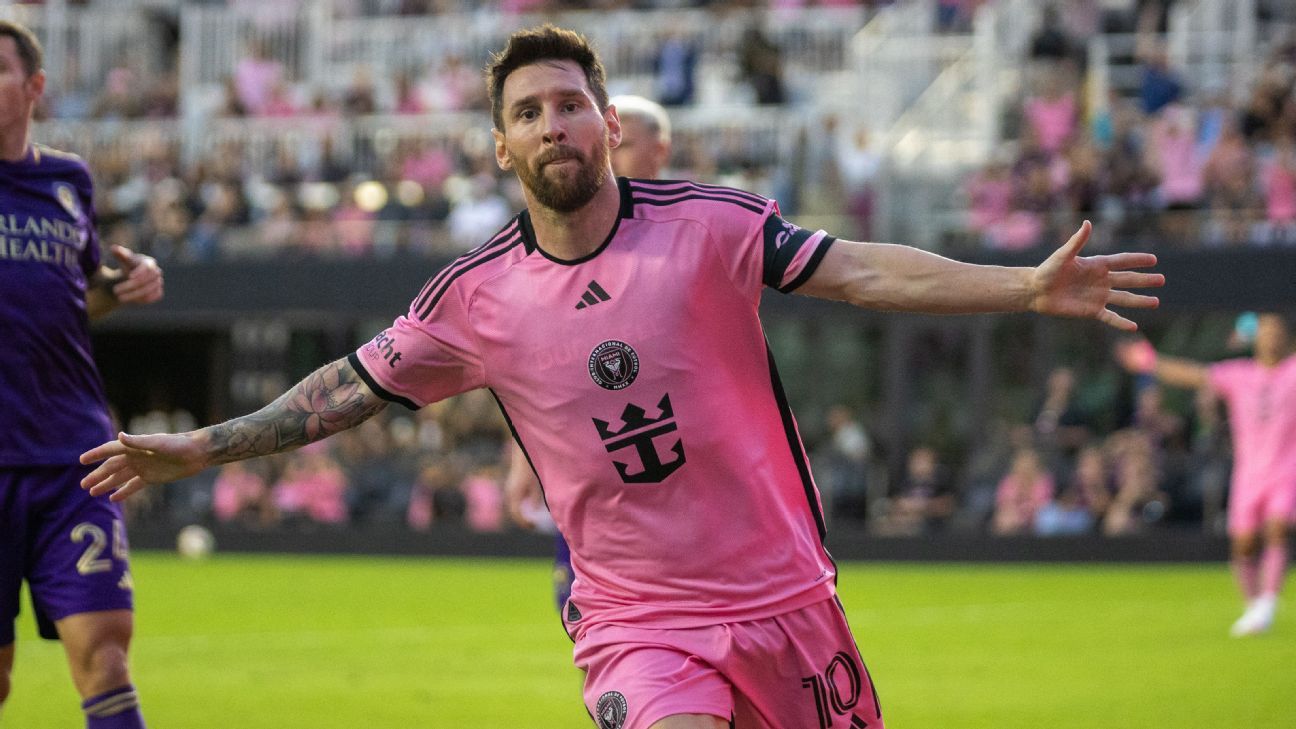Products You May Like
The MLS board of governors approved changes to the league’s roster rules on Tuesday, designed to allow teams more flexibility in how rosters are constructed, sources confirmed to ESPN.
Among the changes approved, which were first reported by The Athletic, are the relaxing of restrictions on the combined number of designated players and under-22 initiative signings. Other changes include doubling in the number of contract buyouts allowed per season, as well as increasing the amount of general allocation money (GAM) teams receive when players are transferred out of the league.
– Stream on ESPN+: LaLiga, Bundesliga, NWSL more (U.S.)
Another change that had been discussed, a so-called legends rule that would have allowed teams flexibility in retaining long-time veterans, was not included in the final package of roster rule modifications. A source with knowledge of the proposed rule told ESPN that continued discussions will take place within the MLS sporting and competition group.
With the U.S. co-hosting the 2026 World Cup with Canada and Mexico and Lionel Messi‘s contract with Inter Miami ending at the end of 2025, MLS has been facing increasing calls to open up its collective checkbook in a bid to increase the level of play on the field and capitalize on the greater attention on the league.
The coming months will reveal just how effective these changes will be.
The modifications, which must be approved by the MLS Players Association (MLSPA), are set to go into effect when the summer transfer window opens on July 18. Neither MLS nor the MLSPA immediately responded to a request for comment.
Of the three major changes, the modification involving the number of designated players (DPs) and high-potential young players (U22 signings) is the most significant.
Previously, if a team used all three available senior DP slots, it was allowed only one U22 signing. A team with two senior DPs as well as one young DP or a DP that can be bought down with targeted allocation money (TAM) could utilize up to three U22 signings. Now a team can have three of each, or have two DPs and four U22 signings plus an additional $2 million in GAM.
It’s worth noting that acquisition costs of U22 signings — including transfer or loan fees — do not count against the salary budget, though the salary of a U22 player cannot exceed the maximum budget hit, which for this season is $683,750.
The change is expected to benefit a team like Inter Miami, which has been arguably the most aggressive club in terms of signing DPs and U22s, and has been juggling those designations in order to become salary budget compliant.
The second major change, the increase to two contract buyouts per year, was made in a bid to punish roster-building mistakes less severely. Currently, teams are allowed one contract buyout per year. A buyout removes a player’s hit to a team’s salary budget, though financially MLS is on the hook to keep paying the player’s salary. With two such buyouts now permisable, it allows for the potential of more salary budget to be directed elsewhere.
One MLS club’s chief soccer officer, who asked for anonymity because he wasn’t authorized to discuss the changes publicly, told ESPN that he wasn’t enamored with the change because it has greater benefits for big-spending teams by not punishing mistakes as much.
“For me this is kind of lazy, and rewards teams the wrong way,” he said.
The chief soccer office added that he would be in favor of the change if it related to an injured player being bought out, but he sees it as being used to allow teams to get away with poor decisions.
The last change approved Tuesday will give teams more salary flexibility when they transfer a player abroad. Currently, on a per-year basis, teams can convert $1,215,506 of a transfer fee into GAM. Now that amount goes up to $3m per transaction, meaning teams that are more active in transferring players stand to benefit the most.
